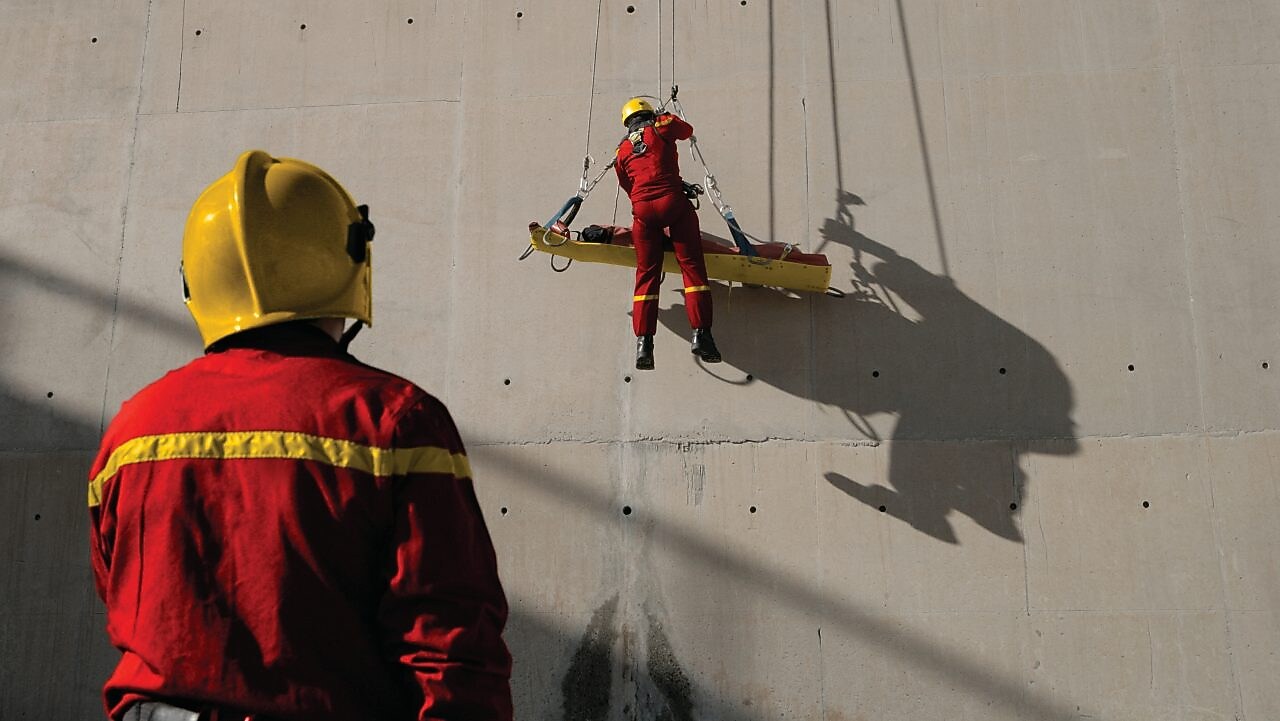
Media
Information materials on events and the local operations of Shell companies in the Philippines.
All media releases published by Year
Latest News and Highlights
Pilipinas Shell Foundation, Inc. Launches First Textile Circulatory Hub
Manila - Pilipinas Shell Foundation, Inc. (PSFI), in partnership with ANTHILL, Maybank Foundation, and the Quezon City LGU, officially launched the Manila Circularity Hub under the ReShell: Weaving Waste Project located at the Payatas Controlled Disposal Facility.
Shell Helix’s Fast Track Auto Workshop Business Summit Showcases Innovative Solutions for World-class Automotive Care
Shell Helix brought together auto workshop owners, along with industry experts, partners, and employees, at the Fast Track Auto Workshop Business Summit, held at the SMX Convention Center in Clark, Pampanga, to explore future-proof strategies and practical tools that help workshops fast-track their business growth.
Shell Energy Philippines, Inc. and Greenlight Renewables Seal Long-Term Power Supply Agreement for a 120MWp Ground-Mounted Solar Farm in Leyte
Manila, Philippines - Shell Energy Philippines, Inc. (SEPH) has signed a Power Supply Agreement (PSA) with Greenlight Renewables Holdings, Inc. (Greenlight) through Greenlight’s wholly-owned subsidiary San Isidro Solar Power Corp., for the purchase of electricity from a ground-mounted solar farm located in Leyte. This agreement marks a significant milestone for the joint venture between Emerging Power Inc. (EPI) and Shell Overseas Investments B.V. (SOIBV), as it is the first PSA signed since its establishment.
Shell Pilipinas Sustains Momentum with Double-Digit Earnings Growth and Php5B FCF Turnaround in 9M25
Manila, Philippines — Shell Pilipinas Corporation (PSE:SHLPH, “SPC” or “the Company”) sustained its performance through the first nine months of 2025, delivering core earnings of Php2.5 billion, up 10% year-on-year, and net income of Php1.3 billion, up 33% year-on-year. Free cash flow remained strong at a Php5.0 billion surplus, a sharp turnaround from last year’s deficit, while gearing held firm at 51% on lower net debt and tight capital discipline.
Shell Mekaniko League 2025 Closes Nationwide Run, Showcasing the Best Filipino Mekanikos
Manila, Philippines — Shell Pilipinas Corporation has brought the Shell Mekaniko League 2025 to a triumphant close, marking a milestone in the country’s automotive industry. For the first time, Shell united car and motorcycle experts under one national platform, creating Shell’s largest mechanic competition with more than 2,000 participants from 26 provinces.
Shell Pilipinas Corporation powers Yanson Group of Bus Companies’ commitment to safe and accessible travel across VisMin
Shell Tech Forward 2025 showcases future-ready solutions for PH construction, manufacturing sector
Shell Pilipinas Outperforms in 1H25, Posting Php2 Billion Core Earnings and Php5 Billion FCF Turnaround
Manila - Shell Pilipinas Corporation (PSE: SHLPH) (“SPC” or “the Company”) reported core earnings of Php2 billion for the first half of 2025, beating the same period last year by 38%. Net income reached Php970 million, while free cash flow turned around to Php5 billion, further strengthening the balance sheet and reducing gearing to 51%.
Shell LiveWire 2025 Announces 3 Tech Startup Finalists
Manila - Shell Pilipinas Corporation continues to fuel the growth of local innovation through Shell LiveWire, the company’s flagship enterprise development program that champions Filipino entrepreneurship. Designed to empower startups and local enterprises, the program has named its top three tech startup finalists following the pitch event in June. These startups were selected for their forward-thinking solutions in agricultural, energy efficiency, and sustainability.
Shell Empowers Filipino SMEs Through Award-Winning Fleet App
Manila - Shell Pilipinas Corporation is empowering small and medium enterprises (SMEs) across the country through the Shell Fleet App (SFA), a first-of-its-kind mobile solution that streamlines fleet and fuel management in a secure and paperless way. Launched in 2022, the app allows business owners to manage their Shell Fleet Card, control fuel spend, track driver activity, and access real-time reports, all in one platform. By simplifying traditional processes and eliminating paperwork and manual tracking, SFA gives SMEs the ability to operate with greater ease, visibility, and efficiency.
Shell Philippines Turns 3 Metric Tons of Plastic Waste Into Bike Racks for Sustainable Mobility Project
Shell Pilipinas Reports Php 870 Million Core Earnings for Q1 2025
Manila - Shell Pilipinas Corporation (SPC) continued its strong performance into the first quarter of 2025. The Company reported core earnings of Php 870 Million, a 26% increase. Net income stood at Php 740 Million, showcasing the company's operational resilience amid a highly competitive and volatile market environment.
Shell Pilipinas Recognized at the 2025 Asia-Pacific Stevie Awards
Manila, Philippines – Shell Pilipinas Corporation was recognized for its forward-thinking initiatives and impactful campaigns across various categories, earning five awards, including the coveted Gold Stevie at the 2025 Asia-Pacific Stevie Awards.
Shell Empowers Young Filipinos with Disaster Preparedness Through Innovative Board Game
Shell Pilipinas Reports Net Income of Php1.3 Billion in 2024
Filipino Engineering Students to Compete in Shell Eco-marathon Asia-Pacific and Middle East 2025
57ᵗʰ Shell National Students Art Competition ‘Lika na, Likha pa ng Obra’ Competition Unveils 15 Winners
Shell National Students Art Competition Holds Art Interact Workshops to Empower Young Artists Across the Philippines
Shell Pilipinas Sustains Strong Performance with P2.2b Core Earnings
Manila, Philippines- Despite a high-interest rate environment and volatile global fuel prices, Shell Pilipinas Corporation (SPC) delivered a 40% increase in core earnings driven by opex savings and high premium penetration across businesses. SPC’s President and Chief Executive Officer (CEO) stated that “As we implement better ways to drive profitability, our discipline and focus are enabling us to compete in a growing but highly-competitive market.”

